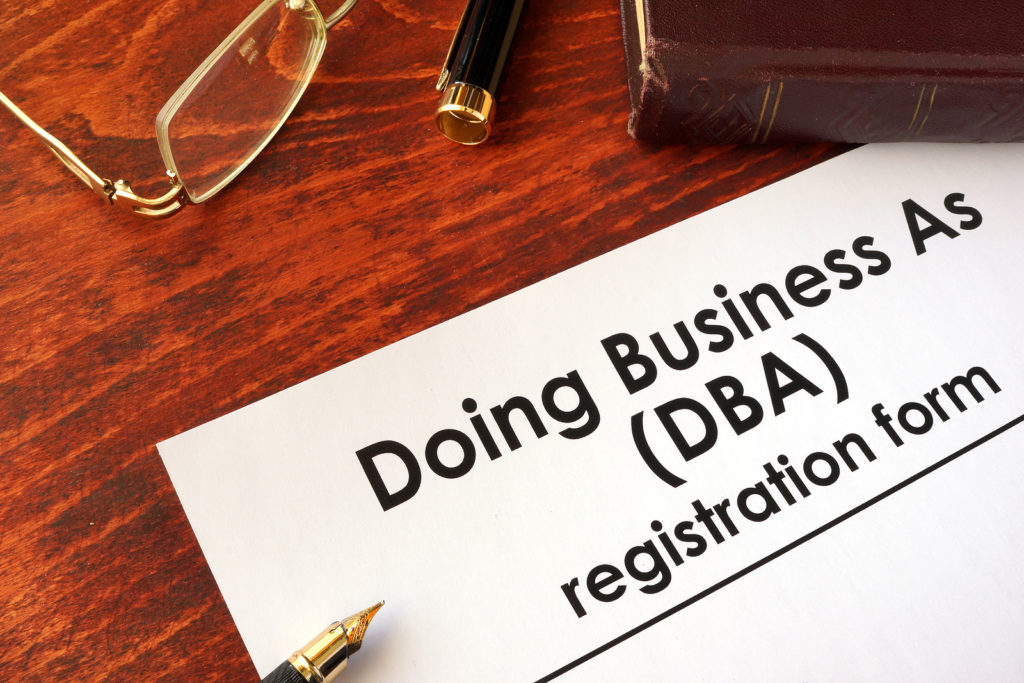When starting a new business in the US there will be various documents and forms to fill out and file, and knowing what to file for will save time and money. First, knowing what type of business you have, whether it’s more informal like a sole proprietorship or partnership or formal like an LLC or Corporation, will determine what forms you need to file, including a DBA and what that will mean for your business. This article will focus on what a DBA is in your business, as well as what the process is to file for one.
What is a DBA?
Before you start the filing process for a DBA it’s important to understand the difference between a DBA and your business; a DBA is not your business, but merely a name that your business operates as. The acronym ‘DBA’ stands for ‘Doing Business As’, it can also be referred to as ‘Assumed Name’, ‘Trade Name’, or ‘Fictitious Name’.
It can be used by a company instead of their legal name, and oftentimes it’s used to promote a brand within an existing company. There are other reasons for why a DBA will be necessary, for example, if running a business as a sole proprietor or partnership a DBA will be used instead of the person’s legal name, this will also indicate professionalism for the business.
How Do You File for a DBA?
- What State Will Your Business Operate In?
Once you know, as a business owner, why you need a DBA, the filing process will be easier, and an important consideration before starting the process is to know what state you will register the name in because each state will have different rules, regulations, and fees.
Some states will need a DBA to be registered with the city (or county) government where others will need it to be registered with the state government. There are some states, like Kansas or New Mexico, where a DBA can’t be filed.
- Is Your Business Name Available?
The next step is to do a name search to double-check the availability of your business name, in case another business has the same name, additionally, as there are increasing amounts of businesses going online it’s important to also search the availability of web domain names, even if your business will not have a web presence in the beginning, if you plan to have you can safeguard a name beforehand.
You can research name availability on TRUiC’s website, here you will also find more resources related to the requirements from each state when filing for a DBA.
- Registering Your DBA
Once you know what state your business will operate in and what your business name will be you can then register your DBA, as mentioned, this can be with the state or city/county clerk. In some cases it will be required to register with more than one level of government, for example at the state and county level.
Filing forms can usually be done in person, by mail, or by third-party, however an affidavit will be required when not delivered in person to ensure identity credibility. Some states, like Colorado, will only allow online trade name registration form submissions.
You can find out more about the state-specific requirements to register your DBA with TRUiC’s useful online resources.
Professional Services
When filing for a DBA it can be useful to hire professional services that will assist with the whole process, however these will usually come at additional fees on top of the filing fees, but it can save a lot of time; MyCompanyWorks is recommended (charging $99).
Summary
Filing for a DBA is a simple process, however one important factor to remember in the planning process is that each state will have different guidelines, regulations and fees, and being aware of this beforehand can save you time and money.
